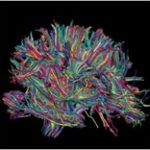The brain is often described as divided into three parts: the “reptilian brain” that controls instincts, the “limbic system” that controls emotions, and the neocortex that controls rational thought. The classic view is that rational thought of the neocortex controls the “lower” reptilian and emotional brains. Currently neuroscientists think of the brain as a [Read more..]
Tag: Emotions
How to Handle Strong Emotions
Mediators face strong emotions all the time. We can view these emotions as the most challenging part of the job or see them as a window into the conflict. Neuroscience can help us cope with the challenges and take advantage of the opportunities. We have discussed the inherent problems in venting during mediation in a prior [Read more..]
Ten Best Practices for Mediators Derived from Neuroscience: Managing Emotions (#6-8)
Strong emotions are common in mediation. Parties often arrive at the session full of resentment and joint sessions can provoke anger, disappointment, or embarrassment. Ignoring strong emotions is risky as it is trigger for the physiologic stress response. 6.Encourage parties to name their emotions rather than labeling them. Mediation training often suggests ways [Read more..]

